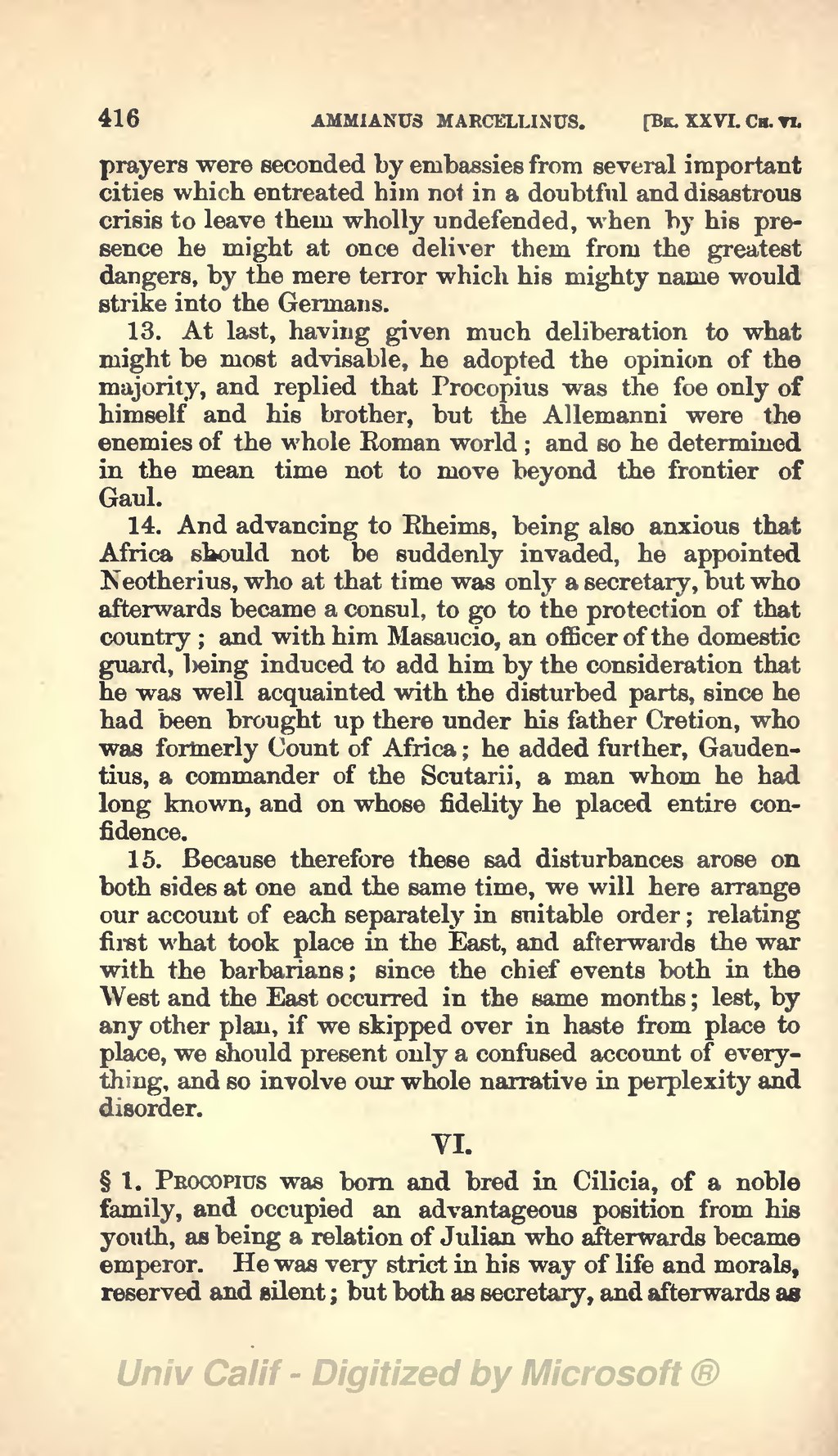were seconded by embassies from several important cities which entreated him not in a doubtful and disastrous crisis to leave them wholly undefended, when by his presence he might at once deliver them from the greatest dangers, by the mere terror which his mighty name would strike into the Germans.
13. At last, having given much deliberation to what might be most advisable, he adopted the opinion of the majority, and replied that Procopius was the foe only of himself and his brother, but the Allemanni were the enemies of the whole Roman world; and so he determined in the mean time not to move beyond the frontier of Gaul.
14. And advancing to Rheims, being also anxious that Africa should not be suddenly invaded, he appointed Neotherius, who at that time was only a secretary, but who afterwards became a consul, to go to the protection of that country; and with him Masaucio, an officer of the domestic guard, being induced to add him by the consideration that he was well acquainted with the disturbed parts, since he had been brought up there under his father Cretion, who was formerly Count of Africa; he added further, Gaudentius, a commander of the Scutarii, a man whom he had long known, and on whose fidelity he placed entire confidence.
15. Because therefore these sad disturbances arose on both sides at one and the same time, we will here arrange our account of each separately in suitable order; relating first what took place in the East, and afterwards the war with the barbarians; since the chief events both in the West and the East occurred in the same months; lest, by any other plan, if we skipped over in haste from place to place, we should present only a confused account of everything, and so involve our whole narrative in perplexity and disorder.
VI
1. Procopius was born and bred in Cilicia, of a noble family, and occupied an advantageous position from his youth, as being a relation of Julian who afterwards became emperor. He was very strict in his way of life and morals, reserved and silent; but both as secretary, and afterwards as tribune
